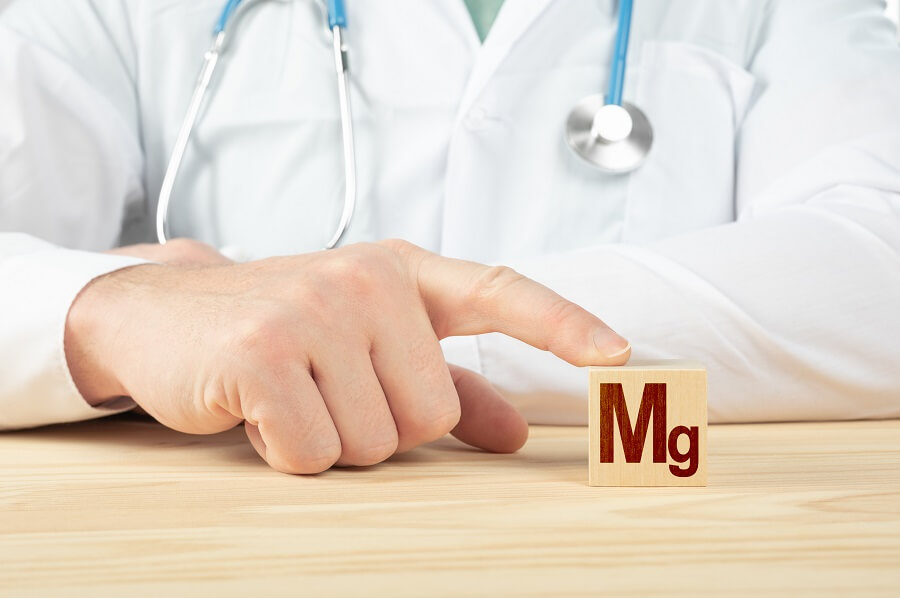What's So Amazing About Trace Elements? Here's Everything You Need to Know
Posted by Eileen Durfee on 12th Aug 2021
 There are toxins in our water supply, food supply, the air we breathe, and the clothes we wear, making it difficult to realize that the body is not supposed to feel bad every day.
There are toxins in our water supply, food supply, the air we breathe, and the clothes we wear, making it difficult to realize that the body is not supposed to feel bad every day.
But, someone taking their health into their own hands has most likely gone down the rabbit hole of diet culture, nutrition culture, and holistic wellness culture. The health-initiated have learned about what foods to avoid and are hunting for the perfect combination of food and supplements for optimizing health.
The body is meant to feel light and airy, and the mind sharp with focus. Sadly, PUFAs (polyunsaturated fats), sugar, and simple carbs prevent the body from operating optimally. Discernment on what is best to put into your body can be difficult, but one thing is for sure: trace elements and minerals are necessary for keeping the body running as smoothly as possible.
Processed food contains little to zero beneficial trace elements. And while eating a whole food diet helps replenish some of these lost minerals, modern soil is deficient in micro-minerals, so whole foods have fewer essential nutrients in them as well. Here is why supplementing trace elements is necessary in today's world.
What are Trace Elements?
Supplementing trace elements is essential for maintaining a healthy body, instilling hair growth, delivering oxygen to cells, reducing inflammation, optimizing health, and hundreds of more functions.
What exactly are trace elements? Trace elements are simply minerals present in a small amount. There are trace elements essential to the integrity of the human body and some that are not.
Here is a list of some common trace minerals vital to the body's health:
- Magnesium
- Potassium
- Zinc
- Copper
- Iron
- Phosphorus
- Manganese
- Selenium
Health Benefits of Trace Elements

Magnesium
Magnesium is probably the most essential trace mineral our bodies need. It's responsible for hundreds of biochemical reactions, and modern research proves there are more processes magnesium aids in every day.
Magnesium is vital for protein synthesis, blood sugar regulation, blood pressure regulation, muscle function, nerve function, energy production, bone development, and DNA and RNA synthesis.
Magnesium also helps transport other trace minerals, such as calcium and potassium, across cell membranes. It's an essential building block that helps the absorption and utilization of other trace minerals.
Potassium
The health benefits of potassium are pretty extensive.
Potassium is a mineral that functions as an electrolyte once ingested. It helps the nerves and muscles to function properly. It regulates heartbeat and moves nutrients into cells while eliminating waste from cells.
Zinc and Copper
Zinc and copper's roles relate to each other. On its own, zinc is beneficial to the immune system, fighting bacteria and viruses. Zinc also helps to make DNA and protein. It calms the nervous system by helping make GABA and serotonin, which are calming neurotransmitters. It's an antioxidant that helps heal the gut, which in turn eliminates inflammation and brain fog.
Zinc is responsible for hair growth and repair. Usually, those suffering from hair loss are deficient in zinc. Alternatively, they might have an excess of copper.
Copper on its own is responsible for the production of energy, tissue, and blood vessels. In addition, it works with the nervous and immune systems and is helpful in brain development.
Copper is an essential nutrient, but not in excess.
When the adrenal glands become fatigued due to things like caffeine intake or stress, zinc becomes depleted. Zinc is necessary for assisting copper metabolization, so there is usually unbound copper in the body when there is zinc missing. Unbound copper, or excess copper, can cause neurotransmitter imbalances, hormone imbalances, and anxiety.
It's crucial to maintain zinc and copper levels so that they each work under optimal conditions.
Iron
Iron is used to make proteins that carry oxygen from the lungs to other body parts and carry oxygen to the muscles. Iron is needed to make some hormones as well.
Iron helps detoxify the body, protects from free radicals, and increases energy production.
If iron metabolization is dysregulated in the body, the results can lead to inflammatory conditions.
Phosphorus
Phosphorus comprises our bones, teeth, DNA, and RNA. It's also used for cell membrane structure and in ATP, the body's energy source. It activates enzymes, prevents dehydration, and regulates gene transcription.
Manganese

Manganese is vital for metabolizing sugar, carbs, amino acids, and cholesterol. It's heavily involved in the functioning of the reproductive system. It gathers in the hypothalamus, the area of the brain associated with hormone regulation.
Selenium
Selenium is an antioxidant, protecting the body from free radical damage. It helps protect the body from infection. Selenium also helps the thyroid glands to function and supports the reproductive system.
Add Trace Minerals to Your Daily Routine
Just as Alice's adventures don't stop anytime soon after falling down the rabbit hole, the quest for optimal health is an ongoing journey. Thousands of research articles discuss the roles each trace element plays in the body, their interactions with each other, and which forms are the most bioavailable to supplement.
Trace minerals are responsible for essential bodily functions that help each system do what it's designed to do. Without them in the diet, the body does not work as well as it could.
Try out magnesium first to feel the difference in every area of your life. See your sleep, mood, and energy all improve. After you add trace minerals into your routine, there is no going back.
